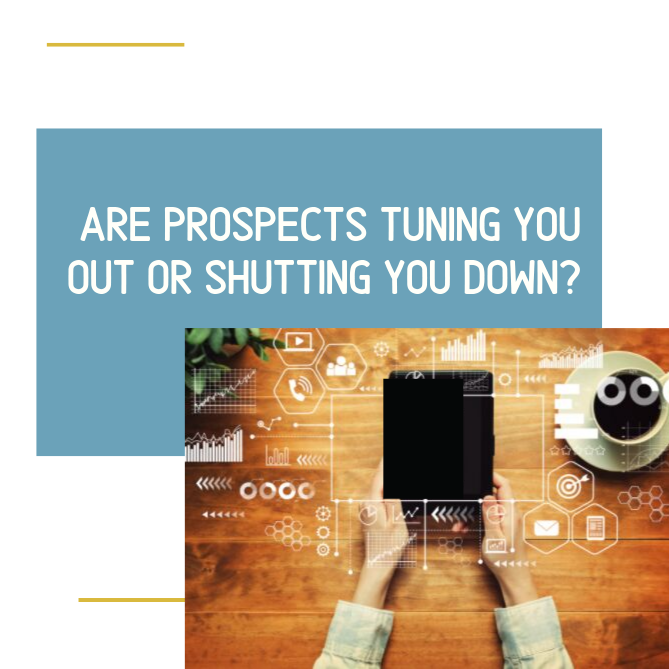Ghosting, while a popular term these days, is nothing new, and there’s not a day that goes by that that an article on ghosting doesn’t appear in one or more of my feeds. Mostly, the articles refer to recruiting and extend to both the candidate and the employer.
Today, I want to talk about sales ghosting. Anyone who has spent any time in sales has experienced the prospect “going dark.” It’s part of the sales process for lots of reasons.
One of the most significant is that a company has had a less than positive experience with a company and even though they could use their service/product they’re underwhelmed and may not like their current salesperson.
Ever have that happen? You think, “hmmm, if only I could work with someone else, I might consider talking with them.” It happens.
It also happens that a new salesperson takes over an account or a prospective account and their emails, and phone calls go unanswered. The silence is deafening.
What’s a salesperson to do?
Move on.
Get aggressive and alienate them further.
Alternatively, they could talk with them as a human being, address the probable situation, share your approach, and show how you can provide small doses of value and insight?
Let’s go with that option. I want to share parts of an email, retyped, and edited to protect the salesperson and prospect to illustrate how they approached the situation.
This type of email may be particularly relevant for mature companies whose offerings have changed over time (i.e., hardware to software, analog to digital, etc.) and whose sales management hasn’t evolved along with it. In other words, sales management is more interested in short-term selling (hardware) or the long-term benefit of their services or software.
Subject: Am I assuming correctly?
NOTE: I’d probably open this as long as I recognize the email
I never heard back from you on the evaluation of ________________.
I am assuming you’ve already made a decision, are not close to starting the _________ process evaluation, or do not want to engage with __________.
I know that your company has engaged with our company before and if you are hesitant to work with us again based on your experience, I understand.
Taking a completely different approach, my goal is to help you save money, create greater efficiencies including _____________, ______________, ____________.
All I am asking for is a few minutes to share my approach and how we’ve helped similar companies. After that call, you can decide if it’s worth meeting with me.
I am also happy to connect you with some of my other customers so they can tell you about the experience they had working with me.
I look forward to hearing from you; good, bad or indifferent.
Here’s what I like about this email:
- The subject line acknowledges there may be something going on
- With a direct yet courteous approach, the salesperson lays out the situation and addresses the likelihood that there was a problem or at least a less than impression previously.
- They ask for something small ― honesty and an acknowledgment
- They have also pointed out that with a different approach, they can potentially help them increase something while reducing something else, which is something they should consider as stewards of their organization.
- The salesperson places their reputation and integrity on the line. It feels personal to me.
The email, in my opinion, is effective because it’s not salesy. We need to be professionally conversational by removing all the buzzwords, doubletalk, and simply say what needs to be said. How do you turn your emails into conversations that people want to have?
Perhaps your emails will be regarded and answered if they were more straightforward and real than canned sales speak that everyone can see right through.






